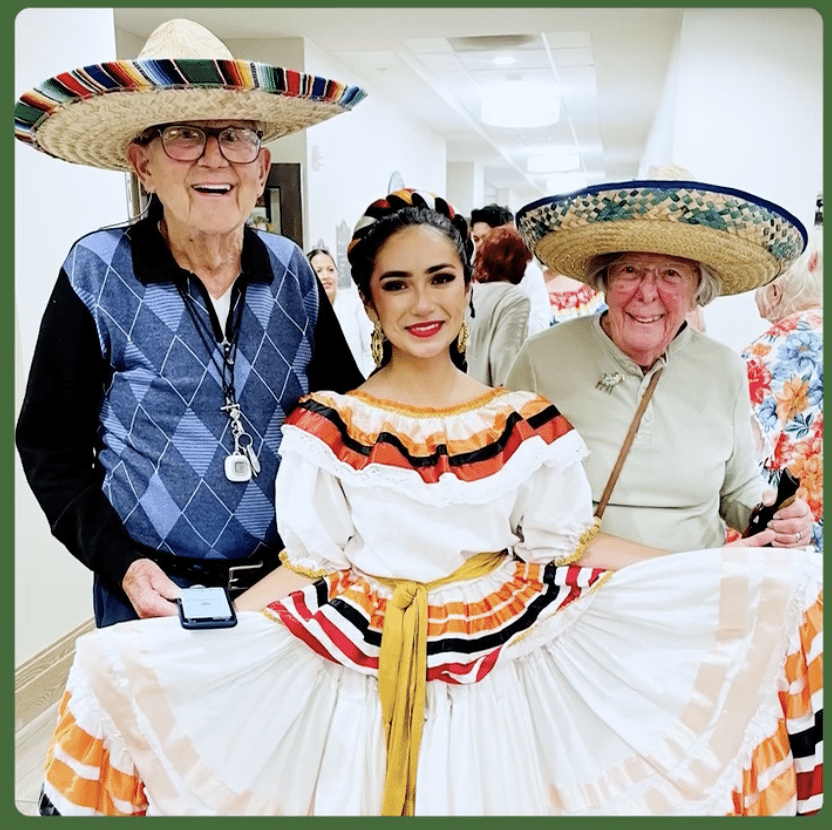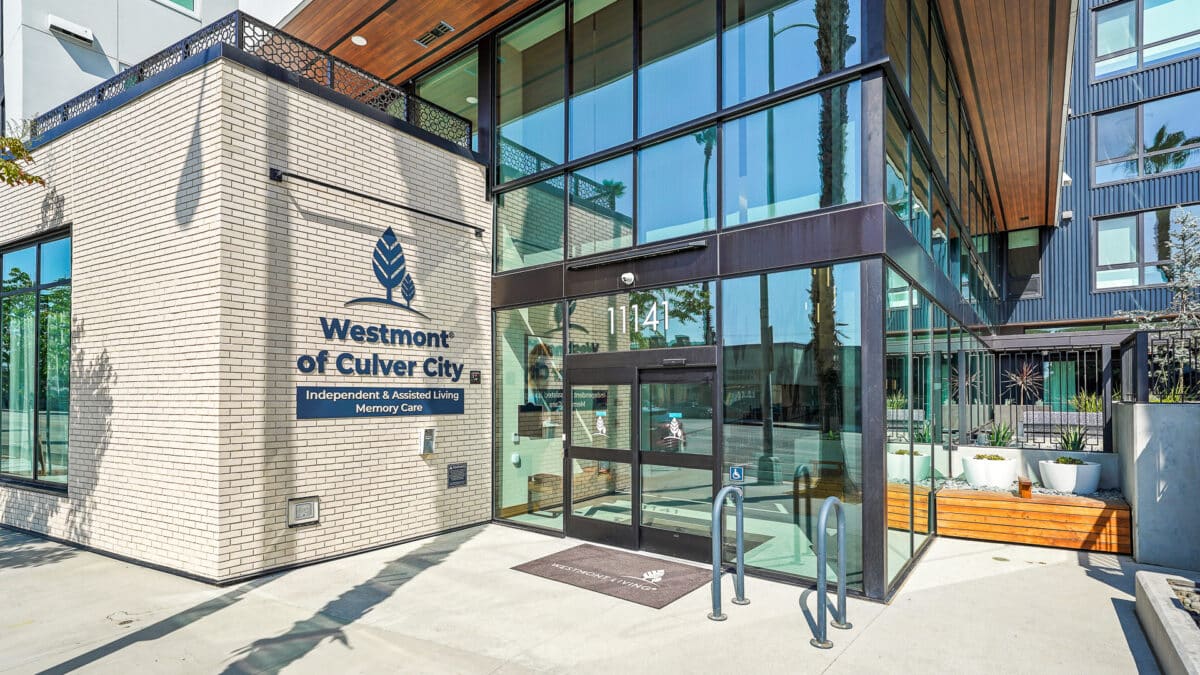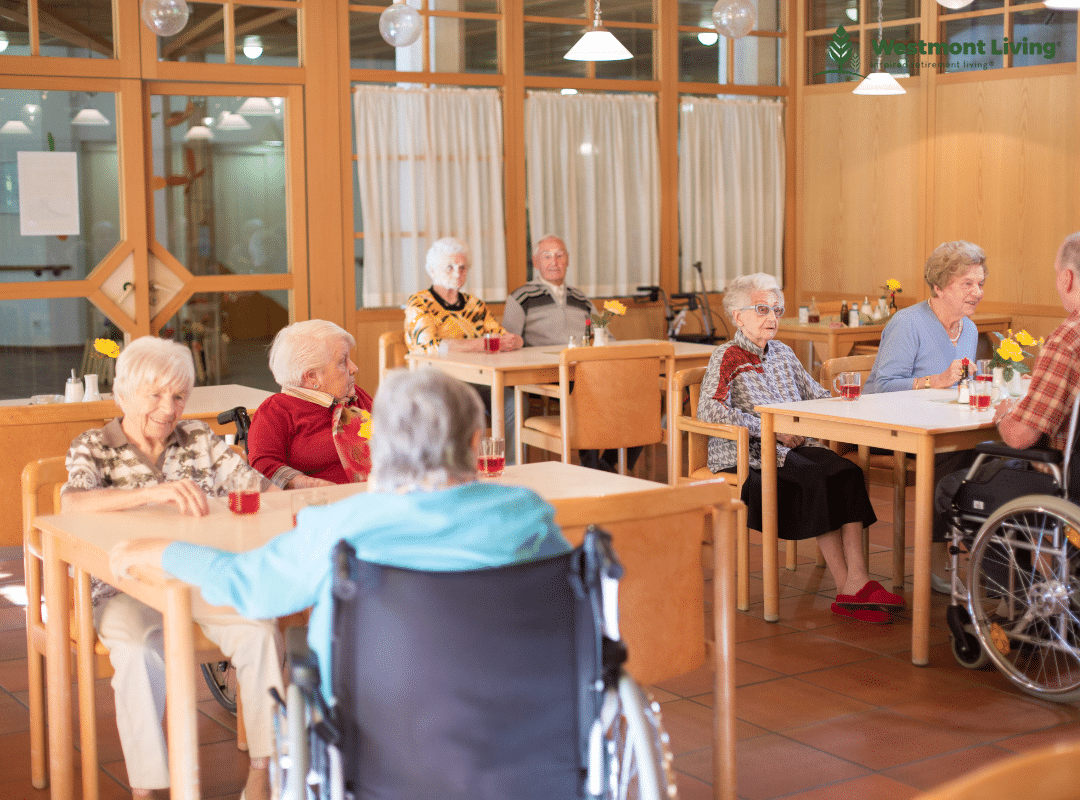7 Activities To Keep a Vibrant Senior Lifestyle Active and Engaged
7 Engaging Activities to Keep a Vibrant Senior Lifestyle
Staying active physically, mentally, and socially is essential for living a vibrant senior lifestyle. Seniors who prioritize connection, movement, and enrichment enjoy greater emotional well-being, better health outcomes, and a stronger sense of purpose. At Westmont Living, we understand how important it is to maintain energy and engagement in every chapter of life.
This guide explores meaningful activities that contribute to a vibrant routine while also helping you better understand care choices like assisted living vs. nursing home or the criteria for assisted living vs. nursing home. Whether you’re deciding between care levels or simply looking for ways to elevate your daily experience, these activities and insights will help you thrive.
Regular Physical Activity for Health and Vitality
Physical movement plays a pivotal role in maintaining a vibrant senior lifestyle. Activities such as walking, stretching, or light strength training can improve mobility, reduce the risk of chronic illness, and enhance mood. These exercises are especially beneficial when designed with seniors’ safety and ability levels in mind.
Regular exercise also helps delay age-related decline, keeping you independent longer. Studies confirm that older adults who stay physically active often face fewer hospitalizations and maintain better mental health. Fitness for strength is key in assisted or independent settings alike. Whether you’re exploring independent living vs assisted living vs nursing home, know that maintaining mobility is vital to every option.
Social Interactions and Community Connection
Isolation can negatively affect seniors’ health, but a strong social network boosts emotional resilience. Social engagement fosters happiness and a deeper sense of belonging—both of which are crucial for seniors navigating care transitions such as the shift from assisted living vs nursing home Medicaid coverage or adjusting to group settings.
Game and Movie Nights
Game and movie nights are more than just entertainment—they offer bonding opportunities that enhance cognitive stimulation and connection. When you gather with peers to watch a film or play a game, you build relationships and create joyful moments that enhance your well-being. These nights also offer mental stimulation and opportunities to socialize in a low-pressure, enjoyable way. See how these events support mental health for seniors.
Community Volunteering Opportunities
Volunteering gives seniors a way to contribute meaningfully while staying socially active. It’s also a way to share your unique life experiences and talents. Whether you’re volunteering at schools, food banks, or community events, the mental and emotional benefits are undeniable. This type of community engagement can greatly enhance your quality of life, no matter where you are on the nursing home vs assisted living cost spectrum.
| Type of Volunteering | Benefits to You | Community Impact |
| Food Banks | Builds empathy and energy | Supports local families |
| Schools | Shares wisdom and skills | Enriches education |
| Shelters | Enhances social purpose | Provides needed assistance |
| Environmental Groups | Encourages activity | Improves community health |

Mental Stimulation and Lifelong Learning
Mental agility is just as important as physical agility. Seniors who participate in mentally stimulating activities enjoy improved memory, better concentration, and a greater sense of empowerment.
Brain Games Benefits
Brain games like puzzles, crosswords, and memory challenges not only entertain but also protect against cognitive decline. These games foster social interaction and keep the brain sharp, whether you’re aging at home or transitioning into a new care level—such as assisted living vs nursing home Medicaid covered options.
Lifelong Learning Opportunities
Seniors can take advantage of online classes, community seminars, and discussion groups to keep learning well into their golden years. This proactive approach to education enriches your mind and keeps you up to date on everything from tech literacy to world history.
| Activity Type | Examples | Benefits |
| Educational Seminars | Local colleges or libraries | Boosts memory and curiosity |
| Online Classes | Free courses via Coursera | Expands skillsets |
| Language Lessons | Duolingo, in-person clubs | Enhances communication |

Artistic and Creative Expression
Creativity fuels joy and connection. Whether it’s painting, playing music, or writing poetry, creative expression helps you process emotions, improve mental clarity, and connect with others.
Participating in creative programs also stimulates the brain and provides a sense of accomplishment. This is vital whether you’re weighing options within the criteria for assisted living vs nursing home, or simply trying to remain engaged and joyful in daily life.
Embracing the Outdoors and Nature
Spending time in nature has lowered stress, reduced blood pressure, and boosted mood. Gardening, walking, or nature photography are great ways to engage with the outdoors.
These activities promote both physical movement and mental peace—key components of a vibrant senior lifestyle. If you’re navigating options like nursing home vs assisted living cost, consider how outdoor access might influence your care environment and satisfaction.
Understanding Lifestyle Options and Support Levels
An active lifestyle also requires the right setting. Understanding the criteria for assisted living vs nursing homes is crucial when choosing your next step. The decision often depends on:
- Whether you need help with daily tasks
- The medical care required
- Social engagement and independence preferences
Learn more about how care levels compare in our article on senior living communities.
Comparing Levels of Care
Understanding what is assisted living vs nursing home helps determine which option fits your current and future needs. Assisted living emphasizes independence with support for daily activities, while nursing homes focus more on medical care. Each option can provide access to social and wellness activities.
Explore this helpful comparison chart from A Place for Mom to see how they differ.
Financial Considerations
It’s important to compare nursing home vs. assisted living costs when making care decisions. Assisted living is often less expensive than nursing homes, particularly when partially covered through private insurance or veterans’ benefits. However, for those relying on government assistance, understanding assisted living vs. nursing home Medicaid options is key.
You can explore financial guidance through this resource from Paying for Senior Care.
Community Resources at Westmont Living
Westmont Living provides access to a range of wellness activities and services that support all care levels. From community gardening to tech workshops, our residents thrive in a setting that’s both vibrant and accommodating. Seniors can stay active and engaged, no matter where they fall on the spectrum of independent living vs assisted living vs nursing home needs.
Access support, activities, and resources tailored for every stage of life—all designed to keep you connected, healthy, and joyful.
Discover the Joy of Living Vibrantly in Every Stage
Living a vibrant senior lifestyle means making intentional choices that foster health, happiness, and connection. Whether you’re staying active with daily walks, engaging your mind with lifelong learning, or volunteering to give back, every moment you invest in yourself adds richness to your journey.
Understanding the criteria for assisted living vs nursing homes allows you to confidently explore options that meet your needs without sacrificing joy or independence. No matter where you are on the spectrum—from independent living vs assisted living to nursing home—there are always meaningful ways to stay connected and fulfilled.
At Westmont Living, we’re here to support your pursuit of a life well-lived. To learn more about our vibrant communities and how we can help you thrive, contact us at Westmont Living.
Frequently Asked Questions
What is the difference between an assisted living facility and a nursing home?
Assisted living facilities are designed for seniors who need help with daily tasks like bathing, dressing, or medication, but do not require constant medical care. These communities promote independence, often including private apartments, social activities, and restaurant-style dining. In contrast, nursing homes provide 24/7 skilled nursing care for individuals with more serious health conditions. Residents in nursing homes typically have more complex medical needs and less independence than those in assisted living.
How do you pay for assisted living when you have no money?
If you have no money, several options exist to help pay for assisted living. If you meet income and care requirements, Medicaid may cover costs in certain facilities, but eligibility varies by state. Some seniors use long-term care insurance, veterans’ benefits, or nonprofit aid programs. It’s essential to explore local and state resources and speak with a social worker or senior living advisor for guidance.
What is one of the biggest drawbacks of assisted living?
One of the most significant drawbacks of assisted living is the cost, which can be considerable and may not be fully covered by insurance or public programs. Many families struggle with out-of-pocket expenses, especially when care needs increase. Additionally, assisted living does not provide the level of medical care that nursing homes do, which can be limiting for residents with advancing health issues. This sometimes requires a move to a more intensive care setting later on.





















